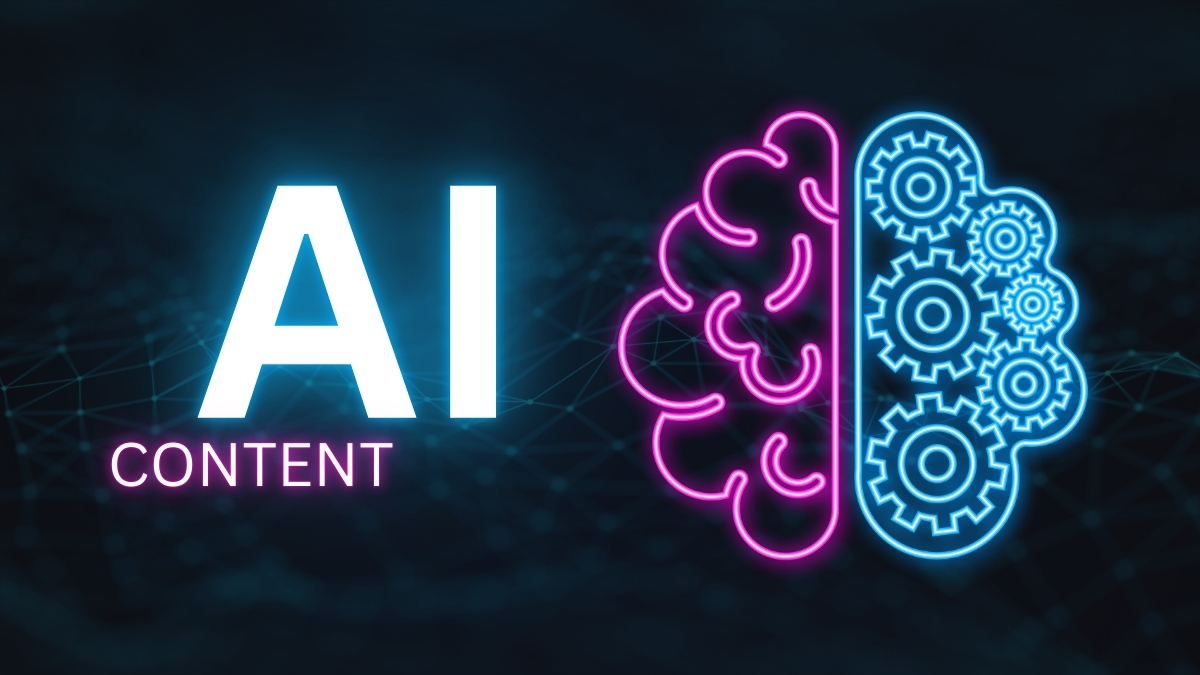In recent years, the artificial intelligence (AI) has revolutionized various industries, and content creation is no longer a new topic. AI tools can now easily generate blog posts, social media post, articles, blog posts, and even capable to write full-length books with speed and accuracy, once took human hours or days to produce can now be created in a matter of seconds. This technological development has undoubtedly brought about a new era of efficiency and convenience. However, this brilliance has many growing concern, the potential dangers and ethical implications of AI-generated content.
The broad accessibility of Content Creation
Now a days AI content writing tools have made it possible for everyone to write content, regardless of their expertise or knowing any background of the written topics. In the past, writing on any particular topic required a significant amount of time and hard work to research and often a genuine passion for the subject. For example, a medical article would typically be written by someone with a background in healthcare that person must have knowledge about the topic so that they can ensure that the information presented was accurate and reliable. Today, however, AI tools can generate well written on any complex topics, even if the person using the tool has no knowledge of the subject.
This popularization of content creation is a positive development in many ways. It has empowered individuals who may not have had that level of skills or resources to express their ideas in written form. For example: language barriers, low expressing skills and so on. For small businesses and startups with low and limited budgets, AI-generated content offers a way very cost-effective for their marketing and communication needs. Also, AI tools can help in language barriers that helps people from different parts of the world to share their stories and perspectives in their desired languages.
However, this positive development and access also comes with significant risks. When AI is used to produce content without appropriate human oversight to creates accountability, it can be misleading, or even factually incorrect information. The internet, has already enough unverified content in large scale, could become even more cluttered with articles that appear credible at very first glance but lack depth or accuracy.
The Diminishing value of Expertise
One of the most concerning part of AI content writing is its potential to gradually destruction the value of expertise. In traditional content creation, expertise is an important & crucial component. Subject matter experts (SMEs) who have worked hard and given their time to bring years of experience and knowledge to the table, ensuring that the content they write is not only accurate but also insightful with strong background. This expertise is particularly most important in fields such as health care & medicine, law, finance, and education, where any kind of incorrect or misleading information can have serious consequences.
AI, however, does not influence expertise. It operates based on provided data and patterns in their algorithm, without truly understanding the nature and seriousness of the subject. While AI can produce content that is grammatically correct, but it often lacks the depth and insight that a human expert would provide. This can be particularly problematic when AI-generated content is used in contexts where accuracy and expertise are much needed and crucial.
For instance, imagine what happens if an AI writing an article on mental health. Without a deep and proper understanding of the subject, the AI might produce content that oversimplifies complex issues or vice versa, fails to consider cultural sensitivities, society, work pressure, financially disturbance or even unintentionally promotes harmful practices. The result may do more harm than good.
Moreover, the wide use of AI for content creation could lead to a gradually devaluation of an expertise. If AI-generated content becomes the norm, there may be less demand for human writers with specialized knowledge. This could result in fewer opportunities for SMEs to share their insights and contribute to public discourse, ultimately leading to a less informed and less critical society.
The Threat of Misinformation
The rapid increase of AI-generated content also raises concerns about the spread of misinformation. AI tools can generate vast amounts of content in a short period with any topics or any input, making it easier for bad people with that level of intension will flood the internet with false and misleading information. This could have serious implications for public opinion, particularly in areas such as politics, health, educations and science.
One of the challenges with AI-generated content is that it can be difficult to differentiate from human-written content. AI tools are capable of producing text that mimics the style and tone of human writers, making it harder for readers to sense whether the information they are consuming is reliable. This confuse between human and AI-generated content could lead to a situation where misinformation spreads more easily and rapidly, where readers may not be able to identify the source of the content.
Moreover, AI-generated content can be easily manipulated to serve specific agendas. For example, AI tools could be used to create fake news articles, social media posts, or even entire websites that promote false narratives. These AI-generated pieces could be strategically distributed to influence public opinion or undermine trust in credible sources of information. In a world where misinformation is already a significant challenge, the rise of AI-generated contents is more likely to increase the problem, making it even more difficult to separate fact from fiction.
The Impact on Creativity and Originality
Another potential drawback of AI content writing is its impact on creativity and originality. Human writers bring unique perspectives, experiences, and voices to their work, resulting in content that is diverse and rich in distinctions. AI, on the other hand, relies on patterns and data, which can lead to content that is formulaic and lacks originality.
While AI can certainly assist with certain aspects and ideas for the topic or even in the writing process, but it is not capable of true creativity. Creativity involves more than just following patterns or replicating existing content; it requires the ability to think critically, taking decisions and make connections between ideas, and take risks. These are qualities that are found in human which cannot be replicated by machines for the time being.
As AI becomes more extensive in content creation, there is a risk that the diversity of human expression could fall. If AI-generated content becomes the norm, we may see a homogenization of ideas and perspectives, with AI simply recreate what it has been command or trained on. This could lead to a situation where content becomes more similar, with less unique voices and ideas that drive innovation and progress.
Ethical Considerations and Accountability
The rise of AI content creation also raises many ethical questions. One of the key concerns is accountability. Once the content is generated by AI, it can be hard to determine who is responsible for the information presented. In traditional content creation, writers and editors are accountable for the accuracy and quality of their work. If errors are made or misinformation is spread, there is a clear chain of responsibility.
With AI content, however, this chain of responsibility becomes more complex. Who is accountable if an AI-generated article contains false information? Is it the person who used the AI tool, the developer of the tool, or the AI itself? These are many questions that have not yet fully addressed, and they highlight the challenges of ensuring accountability in an era of AI-driven content creation.
Moreover, there is the question of transparency. Should readers be informed when they are consuming AI-generated content if so they how to determine? If the content is written by human or AI as far now there is no any specific or much advanced developed tools to determine or find the difference. Some argue that transparency is essential to maintain trust between content creators and their audience. If readers are not aware that they are reading content produced by AI, they may be more likely to accept it as credible and reliable.
There is also the issue of bias. AI systems are trained on existing data, and if that data contains biases, those biases can be reflected in the content they generated by the help of AI. For example, if an AI tool is trained on data that predominantly features the perspectives of a particular demographic, the content it produces may perpetuate those biases, leading to a lack of diversity in the information presented. This could have significant implications for social equity and representation in media and content.
Read this also,
Look at the Upcoming Pixel 9 Pro: Specs, Features, and Leaks
The Samsung Galaxy S25 Ultra: What the Rumors Are Saying
The Exciting Rumors Surrounding the iPhone 16 Pro and iPhone 16 Pro Max
Stree 2: The Unstoppable Blockbuster That’s Redefining Success in 2024
The Role of Human Oversight
Given the potential risks associated with AI content writing, it is clear that human oversight is crucial. While AI tools can be valuable for certain ideas in the content creation process, they should not be relied fully upon as the sole source of content. Human writers, editors, and subject matter experts play an essential role in ensuring that the content produced is accurate, insightful, ethical and doesn’t represent any personal opinion or promoting any particular subject or person.
One approach to reducing the risks is to use AI as a tool rather than a replacement for human creativity and expertise. For example, AI can be used to assist with research, generate ideas, or automate routine writing tasks, freeing up human writers to focus on more complex and creative aspects of content creation. In this way, AI can be use to reduce human efforts rather than totally replace them.
Additionally, there should be clear guidelines and standards in place for the use of AI in content creation. And strict guidelines for the specific topic which are directly responsible of people health, finance, social life and any other political or social manipulation. These guidelines could include requirements for transparency, such as disclosing when content is generated by AI, as well as standards for accuracy and ethical considerations. By establishing these standards, we can ensure that AI is used responsibly and that the content it produces meets the expectations of quality and integrity.
The Future of AI Content Writing
As AI continues to evolve, it is likely that its role in content creation will expand and become more human in near future. Advances in natural language processing (NLP) and machine learning could lead to even more sophisticated AI tools capable of generating content that is indistinguishable from human-written text. However, with these advancements come new challenges and ethical considerations that must be addressed.
The future of AI content writing will depend on how we choose to integrate AI into the content creation process. If we approach AI as a tool to enhance human creativity and expertise, rather than replace it, we can utilize the benefits of AI while minimizing its risks side by side. This will require a collaborative effort between technologists, content creators, and policymakers to develop best practices and guidelines for the responsible use of AI in content writing.







